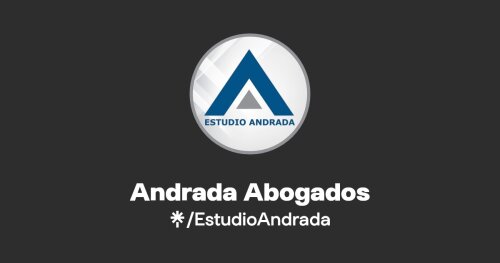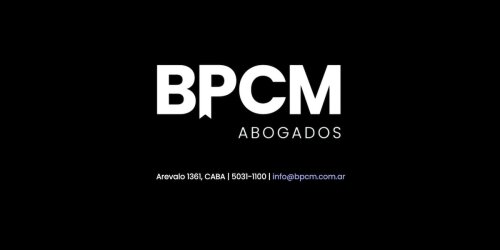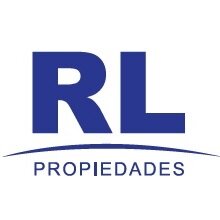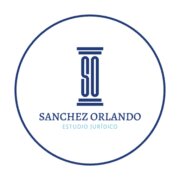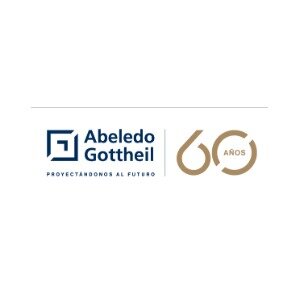Best Private Equity Lawyers in Buenos Aires
Share your needs with us, get contacted by law firms.
Free. Takes 2 min.
List of the best lawyers in Buenos Aires, Argentina
About Private Equity Law in Buenos Aires, Argentina
Private equity refers to investment funds, typically organized as limited partnerships or trusts, that buy and restructure companies that are not publicly traded. In Buenos Aires, Argentina, private equity has become an increasingly prominent way to finance businesses, support growth, and facilitate mergers and acquisitions. Private equity transactions in the city involve complex regulatory, contractual, and corporate considerations, making local legal expertise essential for success. Legal professionals in Buenos Aires are familiar with the interplay of local corporate laws, international investment standards, and market practices necessary to navigate the competitive private equity landscape.
Why You May Need a Lawyer
There are several common situations where legal help is important in private equity matters in Buenos Aires. Investors, fund managers, companies seeking investments, and business owners all face unique legal challenges. You may need a lawyer to:
- Structure a private equity fund in compliance with Argentine regulations
- Negotiate and draft investment agreements
- Conduct due diligence on potential investments
- Review and advise on mergers, acquisitions, or exits
- Ensure compliance with foreign exchange regulations and repatriation of profits
- Address antitrust or competition law requirements
- Advise on tax implications of private equity transactions
- Resolve disputes between investors, managers, and portfolio companies
- Understand labor and employment issues arising from restructuring
- Manage intellectual property and data privacy matters in investments
A lawyer with local experience can help avoid pitfalls, maximize returns, and ensure that transactions are efficiently and lawfully executed.
Local Laws Overview
Private equity activity in Buenos Aires is governed by several key elements of Argentine law:
- Corporate Law: Most private equity investments are made in Argentine corporations (Sociedades Anónimas) or limited liability companies (Sociedades de Responsabilidad Limitada), whose structures, shareholder rights, and governance are determined by the Argentine Companies Law.
- Foreign Investment Regulations: While Argentina is generally open to foreign investment, certain administrative procedures, sectoral restrictions, and reporting requirements apply.
- Central Bank and Exchange Controls: The Central Bank imposes regulations on the inflow and outflow of capital, repatriation of dividends, and currency exchanges, which can affect private equity transactions.
- Taxation: Private equity structures and returns are subject to national and local taxes including income tax, value-added tax (VAT), and sometimes taxes on credits and debits in bank accounts.
- Antitrust Regulations: The National Competition Authority oversees mergers and acquisitions to prevent anti-competitive effects, with certain filings mandatory before closing large transactions.
- Labor Laws: Transactions impacting employment require compliance with Argentine labor protections, including severance, union rights, and collective bargaining agreements.
Legal counsel is crucial to navigate these frameworks and comply with evolving local regulations.
Frequently Asked Questions
What is private equity and how does it work in Argentina?
Private equity involves investing capital into private companies or assets, often with the aim of improving them and later selling at a profit. In Argentina, these investments are facilitated through structured funds and partnerships, underpinned by local corporate and financial laws.
Do I need to be an Argentine resident to invest in private equity in Buenos Aires?
No, foreign investors can participate in private equity funds and deals, but they must comply with certain registration, tax, and reporting requirements as set out by local authorities.
What are the main steps in a private equity investment process?
Typical steps include fund formation, due diligence, negotiation and signing of investment agreements, compliance with regulatory filings, closing the deal, management of the investment, and eventual exit or sale.
Are there restrictions on foreign ownership in Argentine companies?
Most sectors are open to foreign investment, but some industries such as media, defense, and rural land have restrictions or require special approvals under Argentine law.
What taxes apply to private equity transactions in Buenos Aires?
Applicable taxes include income tax, capital gains tax, VAT, and taxes on financial transactions. The structure of the investment can affect the overall tax burden, making legal and tax advice essential.
How does currency control affect private equity transactions?
Argentina has strict currency controls that affect the movement of funds into and out of the country, including investment, profit repatriation, and company exits. Compliance with Central Bank regulations is key.
What should I know about due diligence in Argentina?
Due diligence in Argentina commonly includes a review of corporate, financial, legal, labor, tax, and real estate issues. Local lawyers are needed to identify risks unique to the Argentine legal and economic environment.
How are disputes in private equity transactions resolved?
Disputes can be resolved through negotiation, arbitration, or litigation. Contracts often establish governing law and jurisdiction, and Argentina recognizes arbitration as a valid dispute resolution mechanism.
Are there specific reporting or disclosure obligations?
Yes, both companies and equity funds may have to make periodic disclosures to regulatory bodies, especially when foreign investments are involved or if the transactions reach certain thresholds.
How can a lawyer help with private equity exits?
A lawyer can assist with structuring the exit, securing necessary approvals, ensuring compliance with tax and currency controls, and negotiating terms to maximize returns and minimize liabilities.
Additional Resources
For more information or assistance, consider the following organizations and governmental bodies:
- Comisión Nacional de Valores (CNV) - the Argentine Securities Commission, regulator of capital markets and investment funds
- Inspección General de Justicia (IGJ) - controls local company registrations and compliance
- Banco Central de la República Argentina (BCRA) - governs foreign exchange and capital flows
- Argentine Federal Administration of Public Revenues (AFIP) - for tax issues
- Argentine Association of Private Equity, Venture and Seed Capital (ARCAP) - industry body for private equity professionals
- The Buenos Aires Bar Association - for finding qualified legal professionals
Next Steps
If you are considering a private equity transaction in Buenos Aires, take the following steps:
- Identify your goals and clarify your investment or business objectives
- Contact a local lawyer or law firm with experience in private equity and corporate law
- Gather relevant documentation about the business, assets, or fund in question
- Discuss potential structures, regulatory requirements, and tax implications with your legal advisor
- Ensure all investment documents are carefully reviewed and negotiated
- Remain informed about the local economic and regulatory landscape
Seeking professional legal guidance is essential for protecting your interests and achieving successful, compliant private equity transactions in Buenos Aires, Argentina.
Lawzana helps you find the best lawyers and law firms in Buenos Aires through a curated and pre-screened list of qualified legal professionals. Our platform offers rankings and detailed profiles of attorneys and law firms, allowing you to compare based on practice areas, including Private Equity, experience, and client feedback.
Each profile includes a description of the firm's areas of practice, client reviews, team members and partners, year of establishment, spoken languages, office locations, contact information, social media presence, and any published articles or resources. Most firms on our platform speak English and are experienced in both local and international legal matters.
Get a quote from top-rated law firms in Buenos Aires, Argentina — quickly, securely, and without unnecessary hassle.
Disclaimer:
The information provided on this page is for general informational purposes only and does not constitute legal advice. While we strive to ensure the accuracy and relevance of the content, legal information may change over time, and interpretations of the law can vary. You should always consult with a qualified legal professional for advice specific to your situation.
We disclaim all liability for actions taken or not taken based on the content of this page. If you believe any information is incorrect or outdated, please contact us, and we will review and update it where appropriate.



